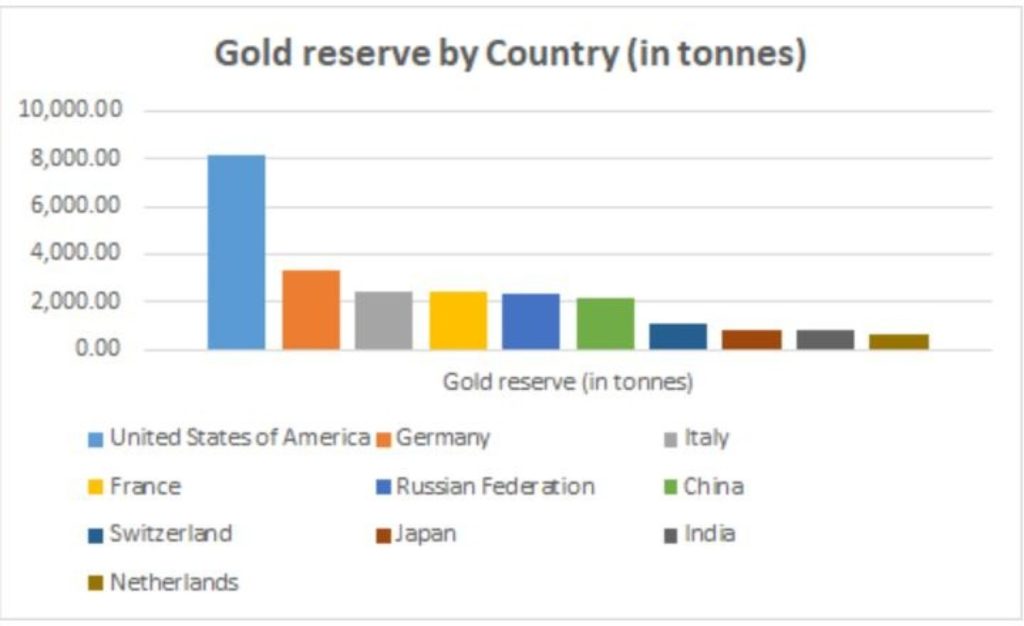The presence of gold reserves can enhance a country’s creditworthiness and influence its standing in the global economic system.

Gold, with its timeless allure and intrinsic value, has been a coveted asset for centuries. The world’s largest economies meticulously amass gold reserves as a symbol of financial stability and a safeguard against economic uncertainties. To subscribe please click tau.id/2iy6f and access our live channel.
As the global economic landscape continues to evolve, India’s position in terms of gold reserves takes center stage, shaping perceptions and reflecting the nation’s fiscal resilience.
DON’T MISS: India’s Inflation Rate Amidst Global Scenario
Why do countries keep gold reserve
Gold reserves are critical for the economic stability of a country, acting as a reliable store of value, particularly during financial uncertainties. It also plays a crucial role in shaping a country’s creditworthiness and overall economic standing, even as the contemporary economic landscape evolves.
History of Gold Reserve
The gold standard was a global practice in the late 1800s and a significant part of the 1900s. In this era, countries backed the value of their paper money with gold by establishing a fixed exchange rate between their currency and a specific amount of gold.
In this era, countries backed the value of their paper money with gold by establishing a fixed exchange rate between their currency and a specific amount of gold. Essentially, each unit of currency issued had a corresponding value in gold, and individuals could exchange their paper money for actual gold at this set rate.

Current Scenario
According to the latest estimates released by the World Gold Council (WGC), India has emerged as the country having the ninth-largest gold reserves in the world.
With its gold reserves measuring 2,191.53 tonnes, valued at $ 131,795 million, India is ranked ahead of wealthy Arab and Western nations such as Saudi Arabia and the United Kingdom.
India holds a significant position in global gold reserves, ranking 9th in the list of countries with the most gold reserves as it a rich cultural affinity for gold in past.
Moreover, a history of gold being a traditional store of value, India’s gold reserves contribute to its economic stability and play a key role in the country’s financial landscape.
Conclusion
As one of the world’s fastest-growing economies, India recognizes the importance of diversifying its reserves to ensure financial stability. The nation’s gold holdings serve as a buffer against economic uncertainties and contribute to investor confidence in the country’s economic trajectory.




